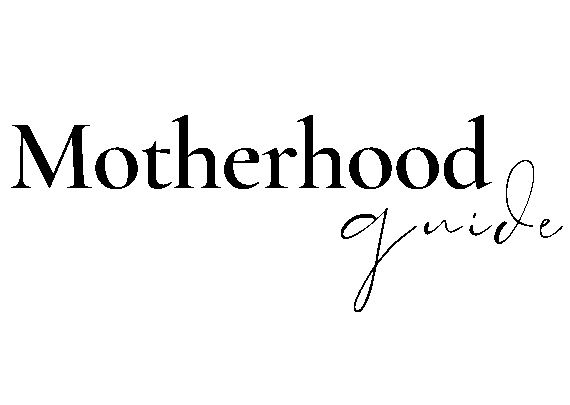Teaching Our Daughters About Their Bodies: Empowering Knowledge for Health and Confidence
As a mother, one of the most important responsibilities we have is to ensure that our daughters grow up feeling confident, empowered, and informed about their own bodies. For many of us, teaching our daughters about their bodies may seem like a given, but recently, something happened that made me realise just how crucial this conversation truly is.
I was heartbroken when I overheard a conversation between my daughter and her friend. They were talking about something that, to me, seemed so basic: how to use tampons. I was taken aback when her friend admitted that she didn’t know how exactly it works. It hit me hard because this is a conversation I thought every girl should have by the time they hit puberty, a conversation about anatomy, personal hygiene, and understanding their bodies.
This moment sparked something inside me. I realised just how important it is for mothers to take the time, with patience and sensitivity, to teach our daughters about their bodies, not just for the sake of their health, but also as a foundation for their self-esteem, well-being, and ultimately, their sexual lives.
Helping Our Daughters Understand Their Bodies: A Crucial Step in Promoting Health, Hygiene, and Body Awareness
Understanding our own anatomy is essential, and it’s something that goes beyond just knowing where things are or how to care for your body. It is deeply tied to a sense of ownership and empowerment. When our daughters know their bodies and are comfortable with them, they can confidently make informed choices about their health and relationships. They won’t rely on others for answers about their body; they will be equipped with the knowledge they need to make decisions that are best for them.
At the most basic level, understanding anatomy is critical for maintaining health and hygiene. It is important for our daughters to know how their menstrual cycle works, how to manage it, and how to use products like tampons, sanitary pads, or menstrual cups properly. Misunderstanding something as simple as tampon insertion can lead to discomfort, embarrassment, or even health risks. But beyond hygiene, it also gives our daughters the agency of their needs, whether they’re at school, at a doctor’s office, or with friends.
I remember the first time my daughter asked me questions about her period. At that moment, I realised that what might seem like a casual discussion for me was a monumental moment for her. She needed me to be open, nonjudgmental, and patient as she trying to understand new concept of her own. I made sure to answer her questions thoughtfully, respecting or even encouraging her curiosity without shame.
Body Literacy and Sexual Empowerment: Essential Lessons for Our Daughters
The conversation about anatomy is also a cornerstone of sexual empowerment. Our daughters need to understand their bodies before they can make decision on their sexual life. We need to help them feel confident and knowledgeable, in order to navigate their sexuality and sexual boundaries. This means teaching them that it is okay to say “no,” it’s okay to be curious, and it’s okay to explore and ask questions without feeling embarrassed or ashamed.
How can a young woman have positive sexual experiences (when the time comes) if they aren’t equipped with the knowledge to understand what is happening to their bodies, what feels right, or how to communicate their needs to a partner? It’s not just about biology, it’s about autonomy, control, and confidence.
Empowering Our Daughters: How Body Knowledge Builds Trust and Encourages Communication
Another good reason for us to talk to our daughters about their anatomy is that it creates a foundation for open, honest woman to woman communication. When we show our daughters that we are willing to discuss these sometimes very awkward or uncomfortable topics, we build trust. They know that they can turn to us with questions or concerns about their bodies or relationships. This trust allows them to feel supported as they grow and encounter new experiences, both in health and in relationships.
As mothers, we often feel like we should protect our daughters from the realities of growing up. But the reality is that ignorance and incompetence can be very harmful. Teenagers who lack knowledge of their own bodies are at higher risk of contracting STDs and becoming pregnant before they’re ready. Studies show that 1 in 10 teen girls experience an unplanned pregnancy each year, many due to a lack of education about sexual health and body autonomy. A 40% of high school students reported not using contraception during their first sexual experience.
How to Start Such a Sensitive Conversation?
If you haven’t yet had this conversation with your daughter, don’t worry, it’s never too late to start. It might feel intimidating, especially if you haven’t spoken openly about anatomy or sex before, but remember that it’s a conversation, not a lecture. You don’t need to cover everything all at once.
Start by creating a safe and open environment where she knows she can ask anything, without judgment. Keep the tone casual but honest. First, ask her what she already knows, and fill in any gaps with age-appropriate information. You don’t need to give her all the details of sexual health right away. Focus on anatomy, personal hygiene, and give her the tools to care for her body with confidence. Let them ask and answer questions as they come up, and remember that this will likely be an ongoing conversation, not a one-time talk.
Don’t shy away from discussing periods, tampons, vaginal discharge, condoms, and other aspects of the female reproductive system or sex. These may seem like uncomfortable topics, but if we don’t talk to our daughters about their bodies, who will? Remember we are not their friends, we are their moms, we have different roles! Be prepare for some silly or even shocking questions, don’t shame them or giggle from it, keep in mind that this is your source of knowing what do they already know and a good chance to explain it more competently. You don’t necessarily need videos or books, a simple conversation is good enough. If your daughter will ask about something you can’t answer straight away, don’t improvise, find the answers later and discretely share it with her. Personally I like backing my words with some articles, that I sent via message for her to read on her own time. Don’t overdose on that, our kids like short and easy.
Teaching our daughters about their body isn’t just about making sure they know how to manage their health; it’s about empowering a young woman to make informed decisions, to have healthy relationships and positive sexual experience, and to feel in full control of their own bodies. When we equip our daughters with knowledge, we give them the power to take care of themselves, not just physically, but emotionally and mentally as well.











